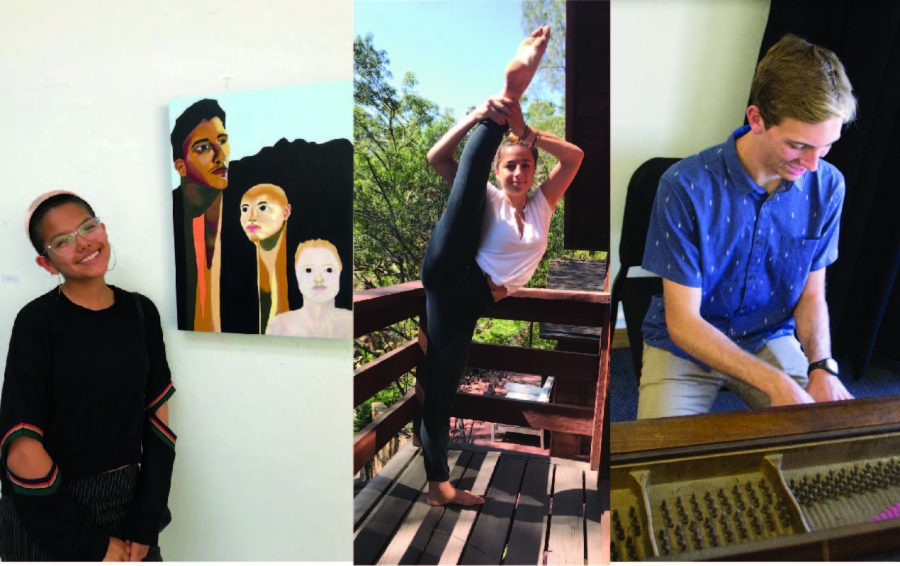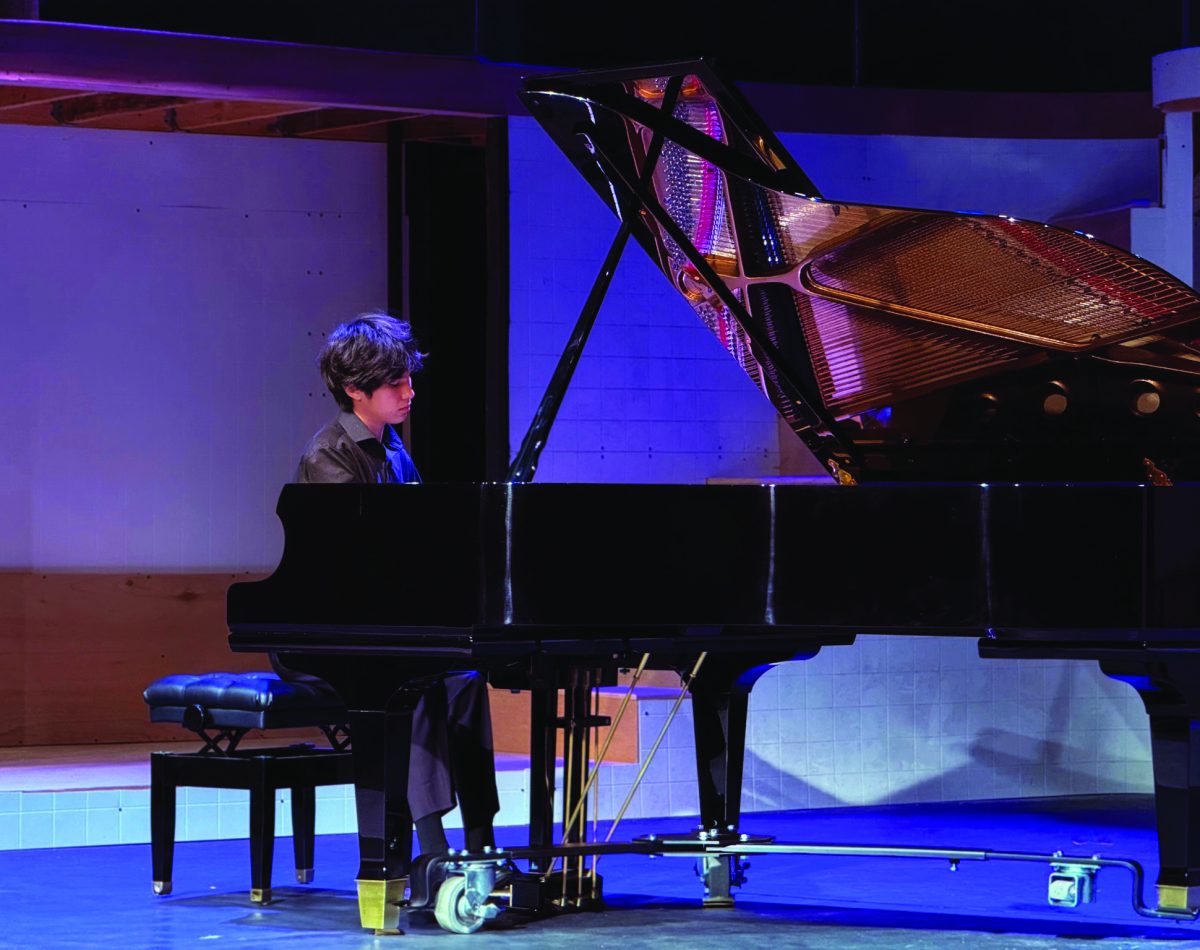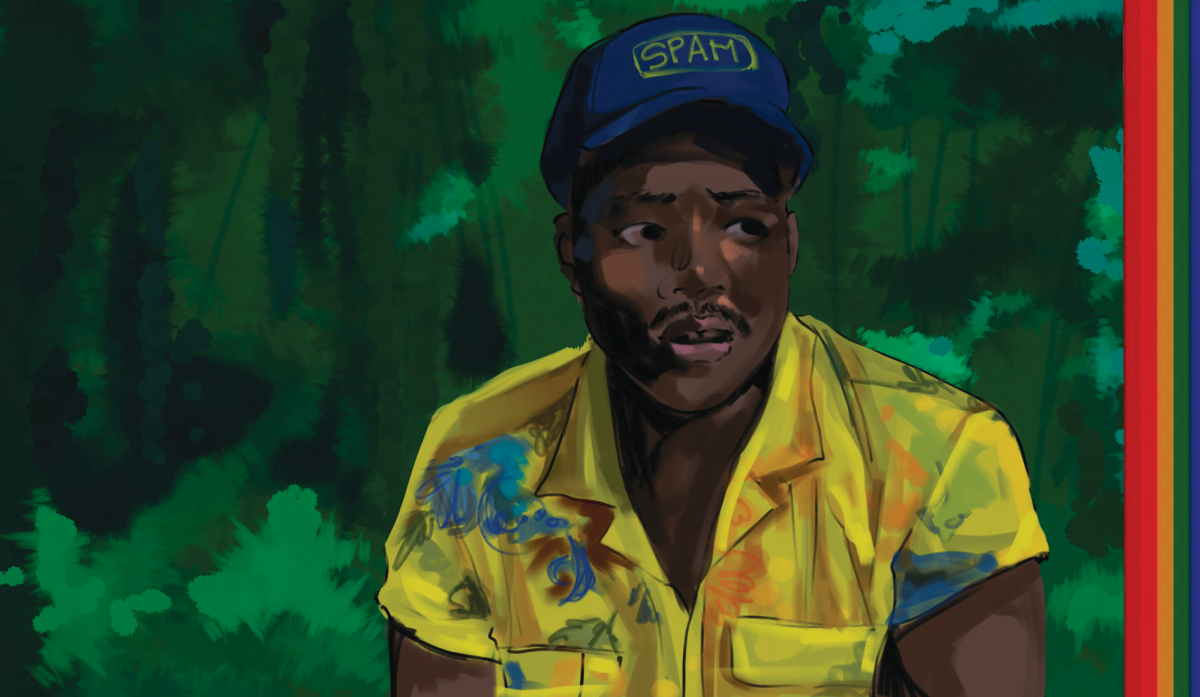Sophia Nuñez ’20: By Jordan Murray
As Sophia Nuñez ’20 sat painting in her morning art class, she said she hoped that her work and the story behind it would challenge people and make them understand the message she was trying to convey.
Every morning for four weeks of her summer, she worked on this goal and immersed herself in the fine arts at the San Francisco Arts Institute’s Pre-College Program.
The program allows students to take two classes during the four weeks and gives them the opportunity to earn college credit.
Since each class was worth two credits, she earned four college credits by the end of the program. Nuñez said that her passion for the fine arts drew her to the program.
“I would recommend this program because you are learning both modern techniques while also being surrounded by a really beautiful campus that has a lot of history to it,” Nuñez said.
Her main goal for her classes was to work on diversifying her painting style because she usually only paints portraits of one person at a time, Nuñez said.
Her main project was a painting that depicted her struggle growing up as a biracial kid in a neighborhood that is primarily white.
“I loved every minute of making this painting because I felt like I could really explore and ask myself new questions all of the time,” Nuñez said. “Overall, I wanted my art to challenge people and make them feel uncomfortable in different ways.”
Ginebra Ferreira ’20: By Annie Beckman
Looking to expand her vocabulary within dance, Ginebra Ferreira ’20 traveled to both Israel and China to work on her technique and learn traditional dances of each countries.
Ferreira started her training with the Kibbutz Contemporary Dance Company in the western region of Israel’s Galilee at Kibbutz Ga’aton. Ferreira said she was not only able to immerse herself in styles familiar to her, such as classical ballet, but also those less familiar, including European hip-hop and Israeli dance. After her training, Ferreira worked on the farm to support the Kibbutz, one of many agriculturally focused communities native to Israel.
“We were all doing our part in order to be able to perform and train with some of the best dancers in the world,” Ferreira said. “It was amazing to be able to give back both in dance and in the Kibbutz communal sense.”
Throughout the program, Ferreira also had the opportunity to visit sights such as the Dead Sea and learn some Hebrew. Upon the completion of her program in Israel, Ferreira traveled to Beijing, China to continue her trip.
In Beijing, a female dancer from the Dynamic Yunnan dance company mentored Ferreira for three hours a day. According to Ferreira, the company’s mission is to represent minorities living in the Yunnan Province of China through dance. Ferreira said that she was able to learn the cultural dance celebrated by the company and was pushed by her mentor’s high standards for ballet.
“One of the most important things you can do as a dancer is to expose yourself to different types of dance and learn how other people around the world express themselves,” Ferreira said. “You can choose what you want to do with your dance career. The possibilities are basically endless, and you don’t have to adjust to any type of dance just because you were born in a particular place.”
Peter Sykes ’19: By Jordan Murray
Peter Sykes’ ’19 love for music brought him to London this summer where he had an internship at Universal Music Group, a company that runs some of the top record labels in the world for many different genres of music. Sykes worked in the classical and jazz departments.
“I have loved music since I began taking classical piano lessons when I was four years old, but recently I have really enjoyed expanding my musical horizons,” Sykes said. “I know I would like to do something in music for my career, so I am trying to explore as many aspects of the world of music that I can to help find something I can see myself doing for the rest of my life.”
Even though he has experience in making music, Sykes said he had no knowledge of what went on behind the scenes of the industry before his internship.
The London office is the home to the classics and jazz division, headed by Dickon Stainer, as well as a multi-genre label called Decca Records. Sykes worked very closely with Stainer, allowing him to get a close look at how the company operates.
Sykes said he was fascinated by how the different departments worked together to create the dynamic structure of the company.
“During my first week, a member of the Artists and Repertoire team and I traveled to Manchester by train to sit in on a recording session,” Sykes said. “I sat in on a meeting between the press team and a local radio station in which they decided which of an artist’s singles should be released to best promote his upcoming album.”

































